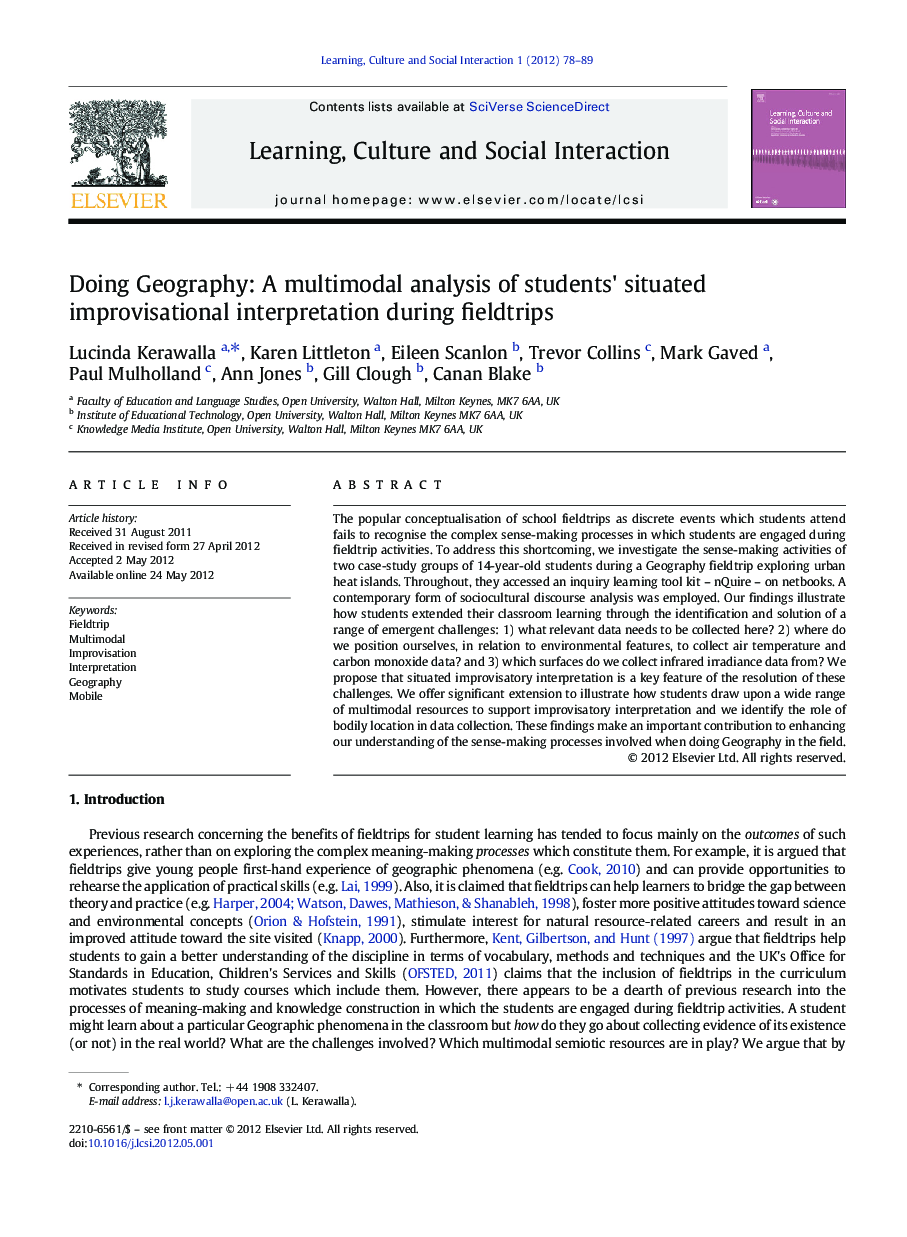| Article ID | Journal | Published Year | Pages | File Type |
|---|---|---|---|---|
| 364434 | Learning, Culture and Social Interaction | 2012 | 12 Pages |
The popular conceptualisation of school fieldtrips as discrete events which students attend fails to recognise the complex sense-making processes in which students are engaged during fieldtrip activities. To address this shortcoming, we investigate the sense-making activities of two case-study groups of 14-year-old students during a Geography fieldtrip exploring urban heat islands. Throughout, they accessed an inquiry learning tool kit – nQuire – on netbooks. A contemporary form of sociocultural discourse analysis was employed. Our findings illustrate how students extended their classroom learning through the identification and solution of a range of emergent challenges: 1) what relevant data needs to be collected here? 2) where do we position ourselves, in relation to environmental features, to collect air temperature and carbon monoxide data? and 3) which surfaces do we collect infrared irradiance data from? We propose that situated improvisatory interpretation is a key feature of the resolution of these challenges. We offer significant extension to illustrate how students draw upon a wide range of multimodal resources to support improvisatory interpretation and we identify the role of bodily location in data collection. These findings make an important contribution to enhancing our understanding of the sense-making processes involved when doing Geography in the field.
